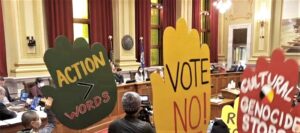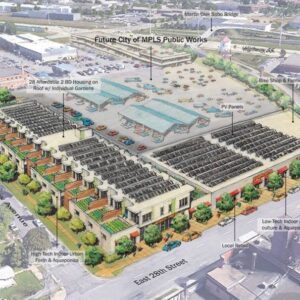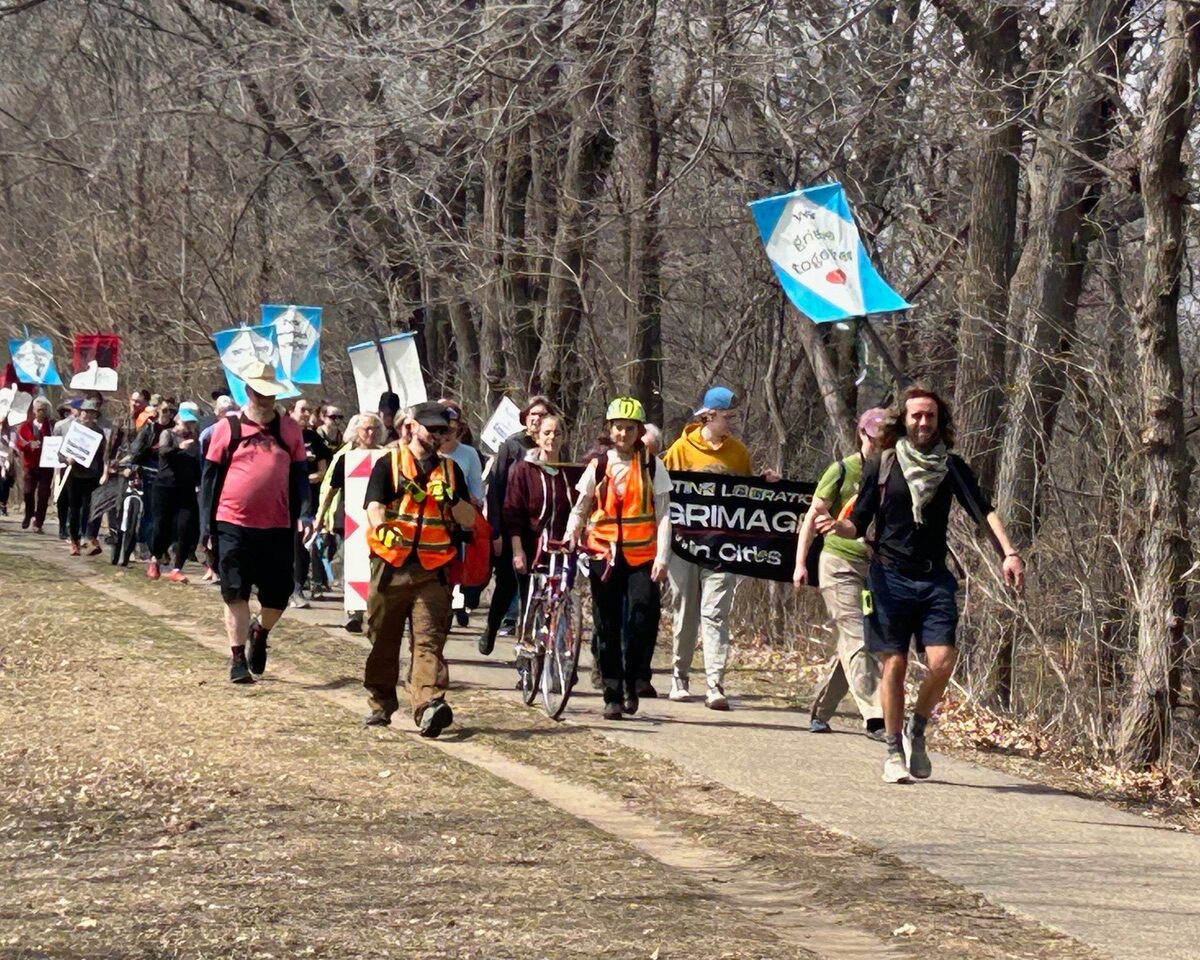
BY BEN R.
On Tuesday, seven members of the Minneapolis City Council showed how hollow their platitudes regarding equity in the city and concerns about environmental racism were as they voted to approve the demolition of the Roof Depot building in the Phillips neighborhood of Minneapolis.
Since 2014, the East Phillips Neighborhood Institute (EPNI) and community residents have hoped to use the site of the Roof Depot building to build an urban farm and neighborhood hub.
Thanks to Council Members Andrea Jenkins, Linea Palmisano, Michael Rainville, Lisa Goodman, LaTrisha Vetaw, Andrew Johnson and Emily Koski, those hopes have been dashed, and the building is now slated to be demolished as soon as Feb. 27 to build a city Public Works facility. The vote to approve the contract for demolition occurred as EPNI still awaits a ruling from a judge that could delay the demolition of the building.
East Phillips is a diverse, working-class neighborhood that is already over-polluted, with asthma rates twice the state average. Knowing the demolition of the building will release an arsenic plume, and additional vehicles used at the site will exacerbate existing pollution, organizers with EPNI and Phillips residents, as well as community allies, showed up in force at Thursday’s meeting to call on the council to vote no on demolition. Already denying community members a public hearing on the issue, the city set a limited capacity on the number of people who could be in the council chambers, forcing many to remain outside in the hallway and unable to show their support for the urban farm. The allies outside of the council chambers were also deprived of being able to hear the entire meeting, as the city cut microphones inside the room when members of the audience would interrupt proceedings.
The council majority who voted in favor of continued environmental harm in East Phillips displayed their hypocrisy prior to the vote on demolition as they honored an artist who spent time in local activist spaces and spoke of the historic damage done to Black and Indigenous communities in the city of Minneapolis during the passage of a resolution honoring Black History Month.
When the discussion turned to the Roof Depot building, a memorandum of understanding was introduced by Council Members Jason Chavez and Andrew Johnson and was unanimously passed by the council. The memorandum could provide EPNI with development rights to three acres of land on the Roof Depot building site as long as the organization drops potential environmental claims against the city.
While introducing the memorandum, Johnson spoke about his support of the EPNI urban farm project in the past, even mentioning that he tried to have the water facility placed in his ward. At the end of his time speaking, though, Johnson made it clear he would vote in favor of the demolition of the building. During the discussion of the memorandum, Council President Jenkins said she acknowledged that environmental racism has affected numerous communities in the city of Minneapolis, however, she would also later vote to approve the contract for demolition.

Artist’s rendition of proposed urban farm
After multiple attempts to delay the vote by both council members and community members, the seven council member majority mentioned earlier in the article voted to approve the contract for demolition.
While those seven council members voted to continue the polluting of East Philips, council members Chavez, Robin Wonsley, Aisha Chughtai, Elliot Payne, Jeremiah Ellison and Jamal Osman stood with the residents of the neighborhood and voted no.
Both Wonsley and Chavez spoke out against the city’s proposed project and the hypocrisy of the City Council before the vote.
“The hypocrisy on this action is shocking,” Wonsley said. “The city did declare racism to be a public health emergency and did form a truth and reconciliation commission to propose solutions to specific harms that the city created and continues against Black and Indigenous communities. Yet we are simultaneously being asked to force a project onto a community that has organized tirelessly for almost 10 years against it.”
“I attended a community meeting about this demolition. I heard from our Native relatives about their fears of what more pollution would do to our community. I think about my dear friend Cassie from Little Earth who lost her son Trinidad to a heart condition at age 16, and I think about all the kids that are developing asthma and our elderly getting cancer,” Chavez said.
A resident from Little Earth also interrupted the meeting to condemn those who voted in favor of the demolition.
“My granddaughter is sitting at home and can barely go outside because she coughs, she can’t breathe because the cold air hurts her lungs while you look sideways and away because it’s not your kid … when that demolition goes down, my grandbaby and all of us are there,” the resident said before the mics in the room were cut.
Reprinted by permission from the Twin Cities Democratic Socialists of America Little Red Letter #98






















